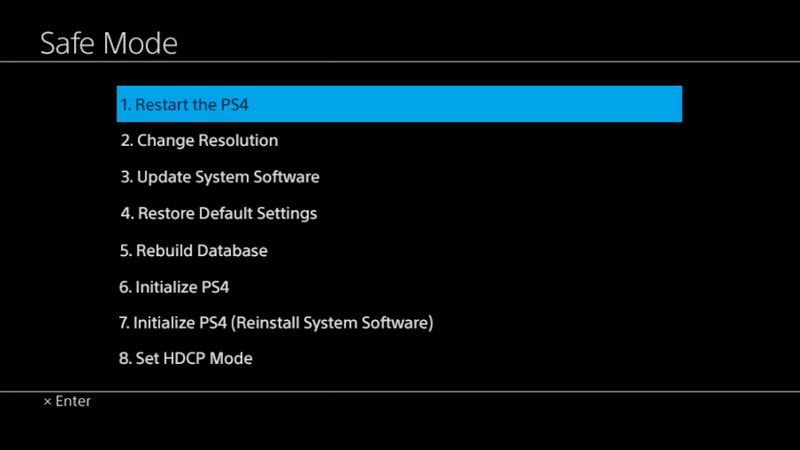Technology has advanced so much that it is rare to see a child without a smartphone in their hands. Kids are becoming tech-savvy at a very young age, and no matter what, chances are kids will figure out how to use a cell phone if you hand them one.
Parents are constantly working; therefore, they lack time to engage with their children; so, they hand over a cell phone for entertainment.
Kids using cell phones and accessing the web in a tech-rich world have become even more important in monitoring and restricting the appropriate content at a very young age. This is not just about pornographic sites, but other social media sites also risk exposing kids to unwanted content.
Having a cell phone has a bad side but good too like, kids aren’t just carrying cell phones; they are skilled as their parents or even more in some cases. Kids use cell phones and tablets before starting school, making them grow in being prepared for schooling, innovation, future careers, and even online homework or coursework.
According to Pediatrics reports, the kids from 8-10 years old spends almost 8 hours a day looking at a screen in social media or web; similarly, the older kids or teenagers spends around 11 hours per day which means the kids are spending more time with technology than they do in schools. Everyone knows the fuzzy-headed feeling of continuously gazing at the cell phone for a long time.
Parents are not cutting down the consumption of social media, which leads to cyber-bullying, sexting, sending thousands of messages, staying up till 2 AM scrolling social media, and spending hours playing video games. This will affect the mental health of kids and create a distraction in education or schools. Also, the tools are so intensely developed over time, and more app options arise to distract kids’ minds.
Some Positive and Negative Effects Of Cell Phones In Kids
Technology usage has taken over kids; while people only see the negative impacts, there are positive sides to cell phones. However, the real question is what parents can do to make cell phones useful without making kids become slaves to cell phones.
Positive Impacts
Many educational online apps on cell phones can help children learn and grow, which can help develop kids’ minds and teach them new things necessary for their careers.
Schools have started teaching through technology in the classroom to help students/kids learn. New technology helps motivate kids to study in new ways through different reinforcement, concepts, and learning techniques.
Studies show that kids capture new things and gadgets very quickly, which helps kids learn how to multitask. Kids will not only be focusing on one area at a time. They can learn, listen, take notes, or do other multitasking activities which can help them shortly.
Kids are often playing video games and have a sharp mind to capture things. Likewise, spatial development can be improved with video games to train Youngers. Visual-Spatial skills help map reading, puzzles, and more; practicing this technique with video games can be a great way to improve abilities.
Problem-solving capability is one of the primary skills to learn. Using cell phones often presents children with problems, making them think critically, make quick decisions, & solve their problems. Games or apps present on cell phones can give kids the practice to improve problem-solving.
Negative Effects
Cyber Crime is a massive problem in tech today; kids and teenagers have grown up in this technological world, so privacy is somewhat foreign to them. Technology has created a risk of increase of privacy issues, harassment, theft, etc.
Kids using eight hours of web or social media are more likely to have a mental health problem. Depression has become the critical issue that has increased suicides rates in youths needing health treatment or counseling and medicines.
Cell phones on hand, kids are lazy today to go out and play or run outside, which doesn’t involve exercise, leading to increased obesity rates in kids.
They fall in grades because of more time spent on cell phones and less time spent on homework. Cyberbullying has become a trend; kids are using social media to bully other kids without facing them.
Social interaction or connection has become a significant issue. As kids are spending time on cell phones, making them faceless with people. Many kids prefer to text rather than talking in person. Even if they are together, they spend more time texting than being together, which will affect kids in communication in the future.
How To Keep Kids Safe in Tech-Rich World
Parents can help their kids benefit from cell phones, teaching them the good side of cell phones with fewer negative effects. Parents can give time to children and have face-to-face interactions with cell phones, ensuring it doesn’t interfere with going out and playing with other kids, which can also be an exercise.
- Communication or Talking with your Kids
Teach your kids that honesty is the best policy. If you talk openly with your child about any online risks, how any person can become a victim without being harsh to your kids, they might understand that you can share the information they are hiding. You need to teach your kids about protecting personal data, also what to avoid, like practicing online bullying to another person. Do not just talk to your kids; also listen to what they have to say to you.
- Use Parental Controls or Monitoring Software
There is much parental control software to monitor your kids, adjusting the restrictions to download adult apps. Many free versions of parental controls will monitor your kid’s screen-time and block inappropriate content. If you choose to keep a monitoring software, you should confront your kids that you might “check” randomly.
- Creating Ground Rules
Make sure you start when your child is young to obey you when they are teenagers. If you give your kids a phone, set up some rules, like not using a cell phone while eating, no late-night talks, setting screen time, etc. Make sure to let your kids know that if they break your rules, you have to face the consequences and take away the online privilege without underestimating the rules you made.
- Review Apps and Content
Time and again, review the apps on your kid’s cell phones. Your review will change according to your kid’s age because when you have a younger child, you’ll have complete access to the device, and your child knows that you are monitoring their activities. Not only check your kid’s cell phone; make your kids “friend” your friend on social media so that you can not only monitor what they’re doing but what their friends are posting.
- Once you send it, there is never going back.
This is the most challenging lesson to teach most kids. When they share inappropriate content with their friends, only their friends can see. They mistakenly believe, “private” post is not accessible to others. Later in the future, they will make the same mistake which will impact their life. Make sure to teach your kids once you send it, it will go out in the world, and the internet is very sensible, which can ruin one’s life. There will be no going back.
- Making a balance of trust and accountability
Technology can make kids into trouble if they are not responsible. When your kids grow up, constant monitoring and nagging can cause a parent to violate their privacy and make them fail to teach a lesson to be responsible. So, every parent must find a balance between trust and accountability, teaching their kids how to use technology responsibly and balance with kids. However, it is very tough to balance for most parents.
- Web Content Filtering
It’s important to tell your kids what they can do and cannot do online. Start making safety rules before something terrible happens. You can monitor your kids by looking at the browser’s history, but it will be pointless if they know how to delete them. Parents can try or invest in content filtering software to block or visit inappropriate sites.
- Teach everything about the internet
Making your kids familiar with the internet will help your kids understand the risk. They should understand the internet poses a lot of danger. If your kids get a message from people they don’t know, they shouldn’t respond to them and teach them that strangers on the internet aren’t always who they seem to be.
Final Thoughts
Technology has drastically changed in today’s generation. The call phones and the internet can be a wonderful place to learn, play games, talk to your friends, but there are also predators, scammers that may harm your kids. There are many ways you can apply or try in the tech-rich world to make your kids safe. There are many things to explore for kids; therefore, parents should keep an eye on them and make the right choices. Let them understand and learn about cell phones and internet content, giving them space.

